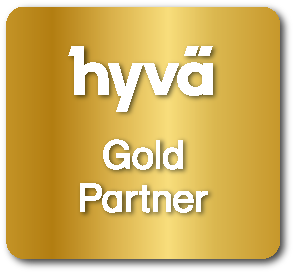URL structure is a cornerstone of effective Search Engine Optimization. For a powerful e-commerce platform like **Magento 2**, optimizing URLs for products, categories, and CMS pages is not just a best practice; it's a critical factor in enhancing crawlability, improving user experience, and achieving higher search rankings. This guide will delve into **Magento SEO URL optimization**, covering essential aspects like URL rewriting, suffix handling, trailing slash rules, canonical link configuration, and tips for multilingual/multistore setups. To explore all the SEO solutions qoliber offers for Magento 2, you can visit our Magento 2 extensions page.
A well-structured URL is both descriptive for users and easily parsable for search engine bots, making it a fundamental element of a truly **magento seo friendly urls** strategy.
---
1. The Anatomy of an SEO-Friendly URL in Magento 2
An ideal URL is concise, descriptive, and keyword-rich, providing immediate context about the page's content. Magento's default capabilities offer a good starting point, but advanced configurations are often needed for optimal **magento seo url** performance.
Key Elements of SEO-Friendly URLs:
- **Readability:** URLs should be easy for humans to read and understand. Avoid long strings of numbers or obscure parameters.
- **Keyword Inclusion:** Incorporate relevant keywords naturally within the URL path. For example, `yourstore.com/electronics/smartphones/` is better than `yourstore.com/cat1/prod123/`.
- **Hyphens as Separators:** Use hyphens (`-`) to separate words in URLs, as search engines interpret them as spaces. Avoid underscores (`_`).
- **Lowercasing:** All URLs should ideally be lowercase to prevent duplicate content issues arising from case sensitivity.
Magento allows for configuring URL keys for products, categories, and CMS pages. Ensuring these are unique and descriptive from the outset is crucial for a strong **magento 2 seo friendly url** foundation.
---
2. URL Rewriting and Suffix Handling in Magento 2
Magento's powerful URL rewrite system allows you to create clean, search engine-friendly URLs for virtually any page. Proper configuration of suffixes can also influence how your URLs appear in search results.
Configuration Best Practices:
- **URL Rewrites:** Navigate to `Marketing > SEO & Search > URL Rewrites` in Magento Admin. Here, you can manually create or manage redirects (301, 302) for old URLs to new, optimized ones, preventing 404 errors.
- **Category URL Suffix:** In `Stores > Configuration > Catalog > Catalog > Search Engine Optimization`, you can set a suffix for category URLs (e.g., `.html`). While `index.php` should be removed, the `.html` suffix is generally optional and doesn't significantly impact SEO, though consistency is key.
- **Product URL Suffix:** Similar to categories, you can add a `.html` suffix to product URLs. Again, consistency and preference for cleaner URLs often lead to removing it.
- **Remove `index.php` from URLs:** Ensure `index.php` is removed from your URLs. This is a standard Magento configuration and critical for clean URLs.
Regularly reviewing and managing URL rewrites is crucial to prevent broken links and maintain your **magento seo url** structure.
---
3. Trailing Slashes and Canonical Link Configuration
Inconsistent use of trailing slashes (`/` at the end of a URL) can create duplicate content issues. Canonical tags are your primary tool to address this and consolidate link equity.
Handling Trailing Slashes and Canonicalization:
- **Trailing Slashes Consistency:** Decide on a consistent approach (with or without trailing slashes) and enforce it across your site. Use 301 redirects to consolidate any inconsistencies. Magento's configuration typically handles this, but custom servers might need additional rules.
- **Canonical Tags Implementation:** Ensure every unique, indexable page has a self-referencing canonical tag. For duplicate content generated by filters, sorting, or session IDs, the canonical tag should point to the preferred, indexable version of the page. This is vital for telling search engines which URL is the master version and is a core component of any **magento seo suite**.
- **Product Page Canonicalization:** For products with variations (e.g., color, size) or accessed via multiple paths (e.g., from different categories), ensure all variations canonicalize to a single, preferred product URL.
While Magento has some built-in canonical features, advanced scenarios, especially with layered navigation, require more control. Our SEO: Custom Tags extension provides developers with powerful tools to define precise meta robots directives and manage custom meta tags, contributing to effective canonicalization strategies across your Magento store.
---
4. Multilingual and Multistore Setups: Hreflang & URL Strategy
For Magento stores operating in multiple languages or targeting different regions, proper URL structure combined with `hreflang` tags is essential to avoid duplicate content and ensure correct international targeting.
International SEO Considerations:
- **Subdomains vs. Subdirectories vs. gTLDs:**
- **Subdomains (e.g., `en.yourstore.com`):** Treat each as a separate site by Google.
- **Subdirectories (e.g., `yourstore.com/en/`):** Most common for Magento and generally easy to manage.
- **Country-Code Top-Level Domains (ccTLDs, e.g., `yourstore.de`):** Strongest signal for country targeting but most complex to manage.
- **Hreflang Implementation:** Use `hreflang` tags in the HTML header, HTTP headers, or XML sitemap to signal to search engines the language and regional targeting of your pages. This prevents search engines from seeing localized versions as duplicate content and serves the correct version to users.
- **Unique URL Keys per Store View:** Ensure that product and category URL keys are unique across different store views to avoid conflicts, even if content is largely similar.
Managing `hreflang` tags manually for a large multilingual Magento store can be daunting. Our SEO: Hreflangs extension streamlines this complex process, ensuring your international SEO strategy is perfectly executed and search engines correctly understand your regional content versions.
---
5. Leveraging Magento SEO Tools for URL Optimization
While manual configuration is possible, utilizing specialized **seo magento 2 extension** solutions can significantly streamline and enhance your URL optimization efforts.
Recommended Tools & Practices:
- **Automated URL Rewrites:** Beyond Magento's basic rewrite capabilities, advanced extensions can automate redirects for products that change URLs or are deleted.
- **Friendly Filter URLs:** For layered navigation, converting ugly, parameter-heavy URLs into clean, static-looking ones is crucial for SEO. Our SEO: Pretty Filters URLs extension is designed precisely for this, transforming complex URLs into SEO-friendly paths.
- **Dynamic Meta Tag Generation:** While not strictly URL-related, dynamic meta titles and descriptions often rely on URL structure. Our SEO: AI Advisor can provide AI-powered suggestions for these, leveraging the URL context.
- **XML Sitemaps:** An optimized XML sitemap is vital for communicating your preferred URLs to search engines. Our SEO: Advanced Sitemaps extension helps generate clean, split sitemaps for optimal crawl efficiency.
---
Conclusion: Building a Foundation for Magento SEO Success with Optimized URLs
Effective **Magento SEO URL optimization** is far more than just cleaning up URLs; it's about building a robust, crawlable, and user-friendly site structure. By meticulously managing URL rewrites, handling suffixes, enforcing trailing slash consistency, leveraging canonical tags, and correctly implementing internationalization signals like `hreflang`, you lay a solid foundation for your store's organic visibility.
Utilizing dedicated **seo magento 2 extension** solutions from qoliber can automate many of these complex tasks, transforming potential **magento seo issues** into powerful ranking advantages and ensuring your Magento store thrives in search engine results.

Aleksandra "Ola" Czapiewska, née Kijewska
Sorceress of Projects & Wonders
Introducing Ola, a marketing mastermind with nearly two decades of expertise in transforming data into dynamic marketing strategies. Her remarkable track record includes transformative roles at Burda Media Polska, Polska Press Grupa, TIM S.A., and Media Saturn Holding. These positions have seen her launch and lead marketing initiatives that dramatically increased engagement and sales.
A certified Google Partner proficient in top marketing automation platforms like SalesManago and iPresso, Ola has consistently delivered solutions that enhance online visibility and propel business growth.
Currently at qoliber as the 'Sorceress of Projects & Wonders,' she expertly drives projects that surpass expectations, delivering top-notch product quality and securing a formidable market stance.




